John Hines speaking on "Anglo-Saxon" at the Society of Antiquities. #MedievalTwitter
"Topic of this talk is generalization." "The sort of generalization that puts a universal label on specific period is universal."
See also @ISASaxonists' livetweets: https://twitter.com/ISASaxonists/status/1326934446612893698
"Topic of this talk is generalization." "The sort of generalization that puts a universal label on specific period is universal."
See also @ISASaxonists' livetweets: https://twitter.com/ISASaxonists/status/1326934446612893698
Hines has previously made some harsh statements about antiracists calling for medievalists to retire the use of the term "Anglo-Saxon" https://twitter.com/ISASaxonists/status/1311362117195509761
Tonight he will examine "How valid is it to see the Anglo-Saxon period as a coherent entity." and whether it is valid to describe the period using this term. He notes that he was reluctant to "fan the flames" of this controversy.
Begins with Bede's account.
Begins with Bede's account.
Examines the development of the term "English" and "Angle" in both Latin and Old English.
Notes that these terms were usually plural, and argues for them reflecting group identity.
Notes that these terms were usually plural, and argues for them reflecting group identity.
Hines examining the possible derivation of the term "Angle," possibly as a reference to a placename representing the original homeland of the Angles.
Argues for linguistic "fingerprints" allowing tracing of these names across time and space.
Argues for linguistic "fingerprints" allowing tracing of these names across time and space.
Discussing the famous story of Pope Gregory and the Angles, considering how Gregory formed his Latinate version of "Angle" as "Angli."
(None of this, to be clear, is about the term "Anglo-Saxon", which Bede and Gregory never used)
(None of this, to be clear, is about the term "Anglo-Saxon", which Bede and Gregory never used)
Continuing with discussion of terminology. Hines is making no distinction between these various terms.
Again, this discussion of treaties and gold seems unclearly related to terminology discussions, and only continues to demonstrate the overwhelming evidence that variations of "English/Angle" were preferred by the early medieval English.
Notes that even groups who may have thought of themselves as Saxons likely thought of their language as "English."
Hines argues that Battle of Maldon never once refers to anyone as English, but in a variety of local identities. Identity even at this late period was fluid.
"Saxon" is the term used for pre-Conquest English peoples afterward primarily.
Reginald Horseman's scholarship on the term "Anglo-Saxon" being invoked now.
Hines slamming the Horseman quote in the slide as incorrect and poor scholarship.
Hines slamming the Horseman quote in the slide as incorrect and poor scholarship.
Hines states that there was interest in "SAXON" precedents, as they were labeled. States that the notion of the primitive "Anglo-Saxon church" is a contradiction in terms. The focus was on the primitive *British* church, he argues.
Turning to the first instance of "Anglo-Saxon" in modern use.
He claims use of the term "Anglo-Saxon" remains quite limited for the next few hundred years. Archaeologists "regularized" the use to refer to a historical period and recognize the diversity of the people.
He claims use of the term "Anglo-Saxon" remains quite limited for the next few hundred years. Archaeologists "regularized" the use to refer to a historical period and recognize the diversity of the people.
Sharon Turner's famous volume now being discussed. Turner explicit on the evils of slavery.
Jefferson a "polymath scholar" who published on the teaching of "Anglo-Saxon." Expanded the term eventually to encompass Jefferson's contemporary political ideals.
Jefferson a "polymath scholar" who published on the teaching of "Anglo-Saxon." Expanded the term eventually to encompass Jefferson's contemporary political ideals.
"To understand the term "Anglo-Saxon" in American English, we should look at analogues." Looks at French equivalents in the same period.
Term took on range of connotations
Term took on range of connotations
Hines argues that looking at a term "Anglo-African" as relevant to this discussion.
"One may tentatively argue that the term refers to English-speaking Africans."
European immigration changed the linguistic landscape
"One may tentatively argue that the term refers to English-speaking Africans."
European immigration changed the linguistic landscape
Does not have time to examine the supremacist use of the term, including by Lewis Klipstein and the "Anglo-Saxon clubs" of the US.
Argues against DNA claims for an "Anglo-Saxon" race in Britain.
"Terms can be both re- and de-sensitized as terms change."
His previous talks emphasized the need for specificity.
"Terms can be both re- and de-sensitized as terms change."
His previous talks emphasized the need for specificity.
"Insistence on strict factuality" is needed when dealing with problems of popular narratives about the Middle Ages.
"To insist on the term 'Anglo-Saxon' is to not abandon it to extremists."
"To insist on the term 'Anglo-Saxon' is to not abandon it to extremists."
Hines part of a letter in November arguing for it with 70 signatories and many more who "dared not speak up publicly" (???)
Suggests that people who argue against the terms are denying "diversity" of terminology.
Suggests that people who argue against the terms are denying "diversity" of terminology.
"progressive contextualization" is the only approach
"Trying to block things out only makes things worse." Compares this to PTSD in which blocking out problems of the past only makes things worse.
The talk is over.
"Trying to block things out only makes things worse." Compares this to PTSD in which blocking out problems of the past only makes things worse.
The talk is over.
Q: when is "Anglo-Saxon" really needed as a term?
A: Ability to vary between "early medieval English" and "A-S" allows us to illustrate shades of meaning.
Argues that the Ruthwell Cross is clearly "A-S" and not from "early med England"


A: Ability to vary between "early medieval English" and "A-S" allows us to illustrate shades of meaning.
Argues that the Ruthwell Cross is clearly "A-S" and not from "early med England"



Q: Is there a reason why you use the term "English" rather than "Anglo-Saxons" throughout your discussion?
A: Wanted to use it only where it appears in the sources.
(thus he didn't really use it until discussing the modern period)
A: Wanted to use it only where it appears in the sources.
(thus he didn't really use it until discussing the modern period)

 Read on Twitter
Read on Twitter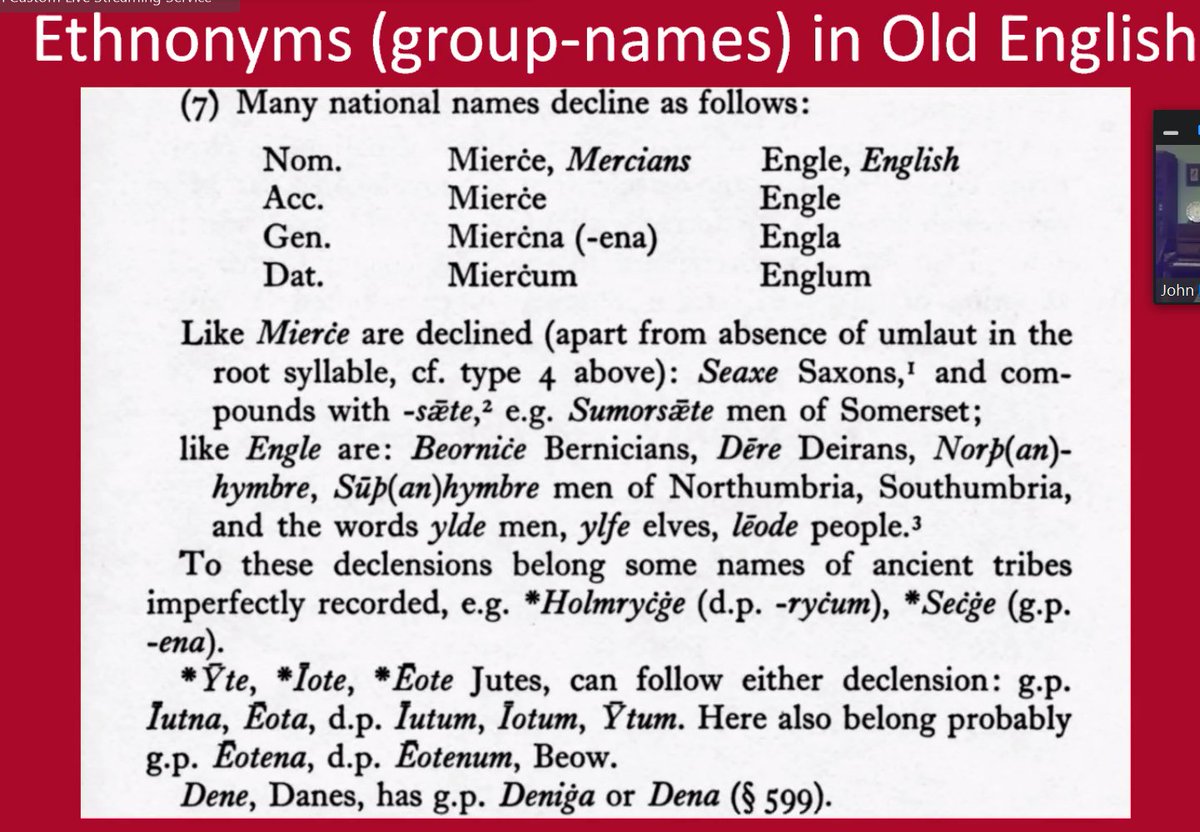
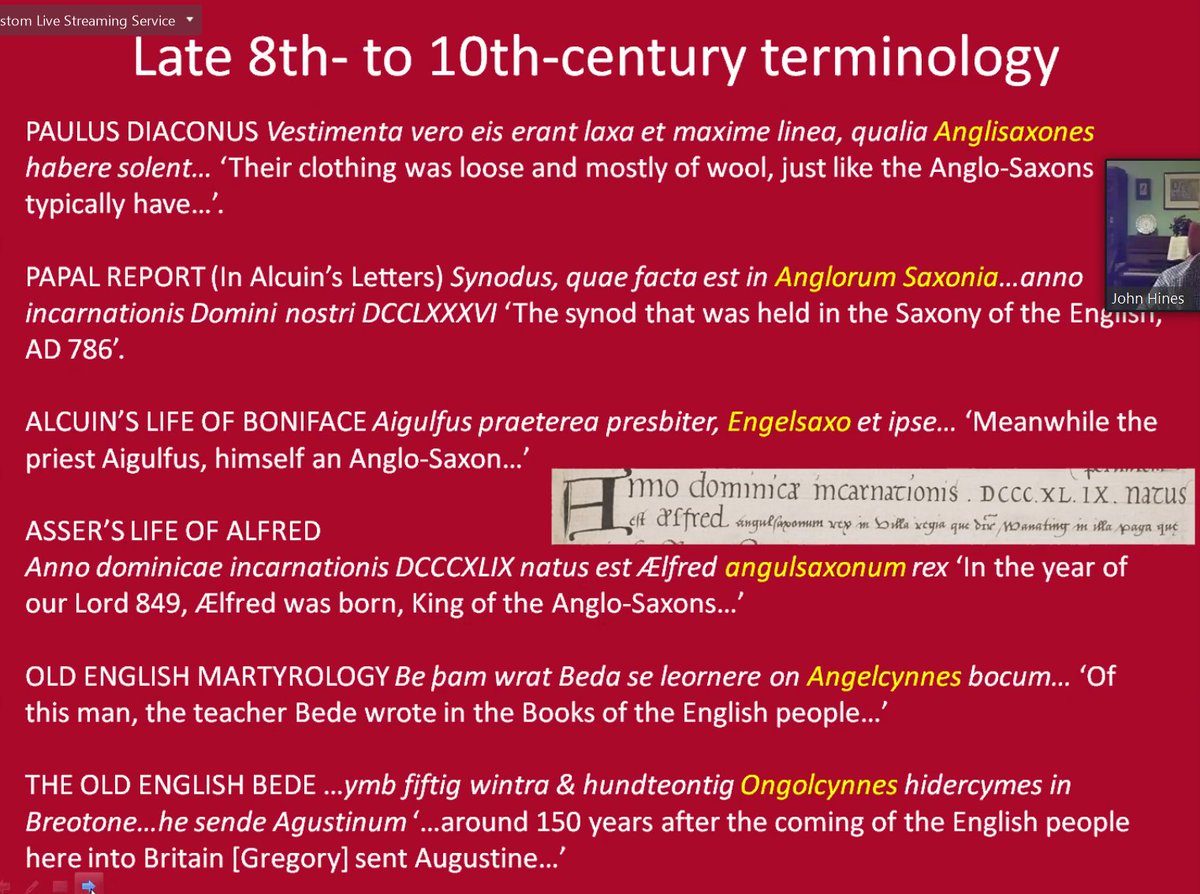
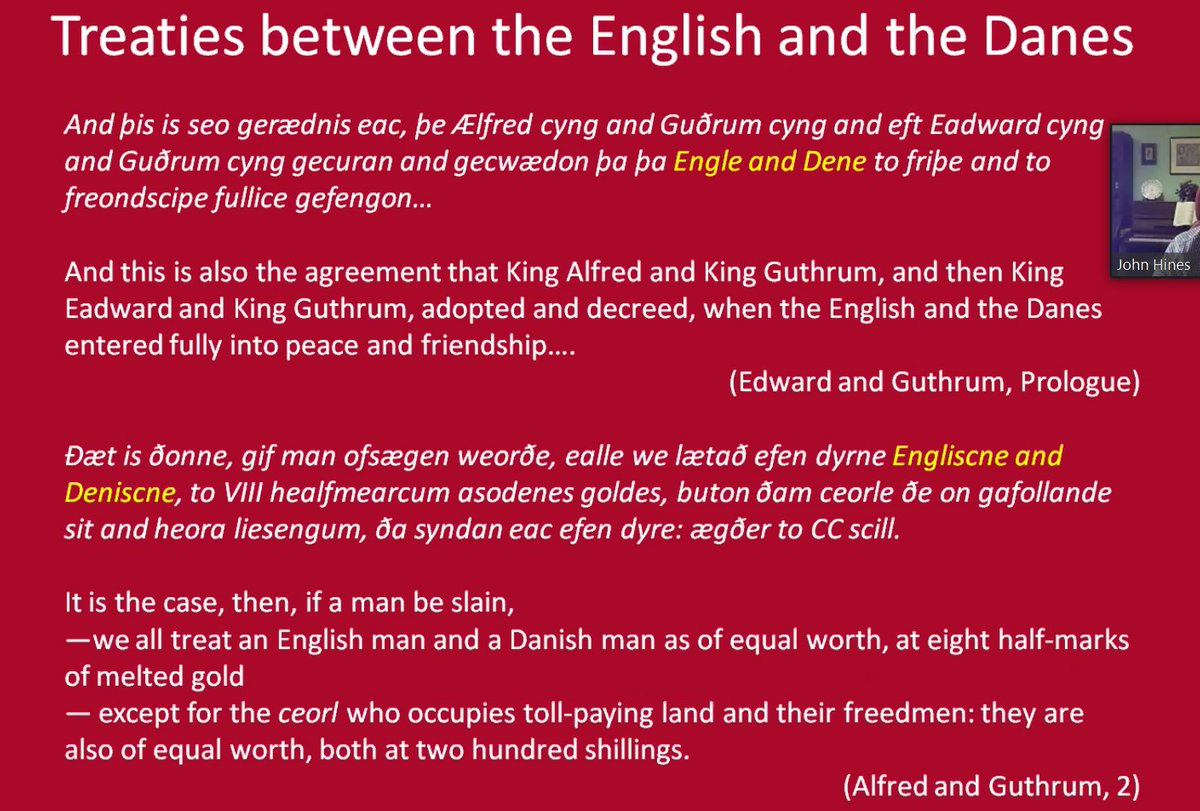
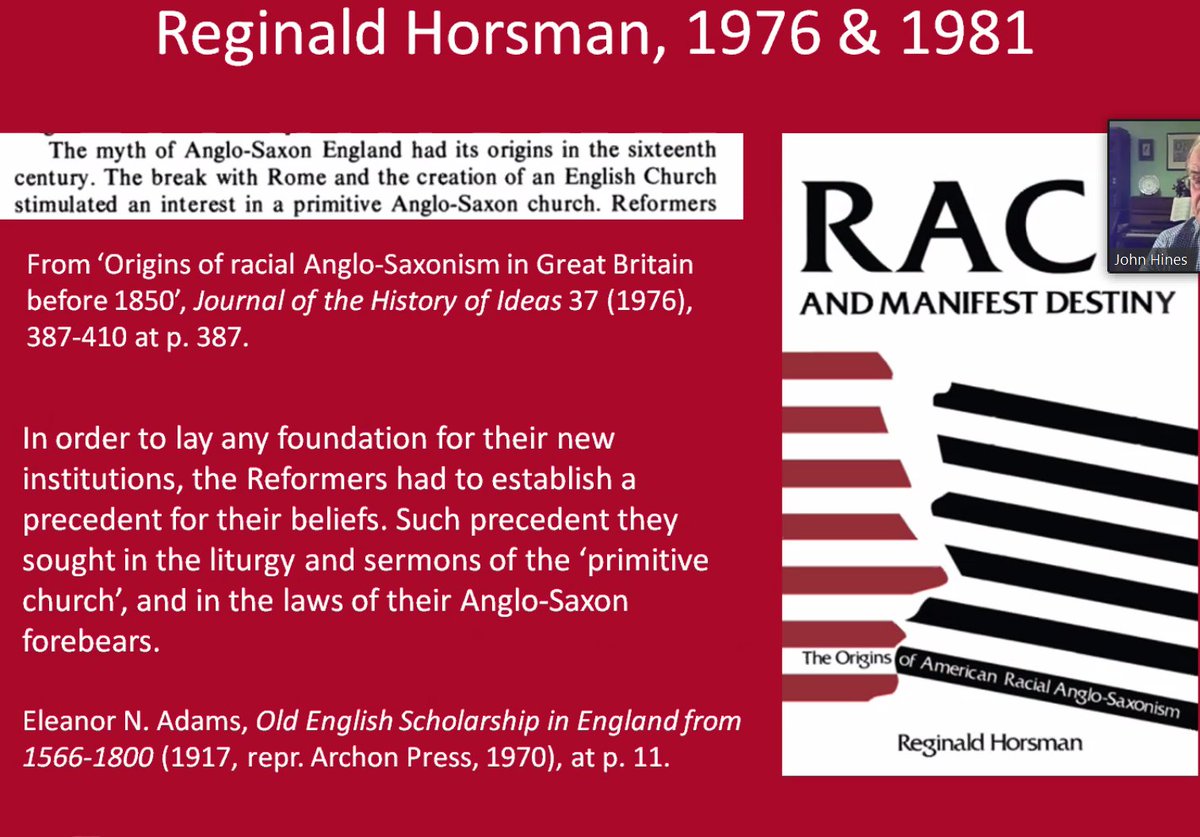
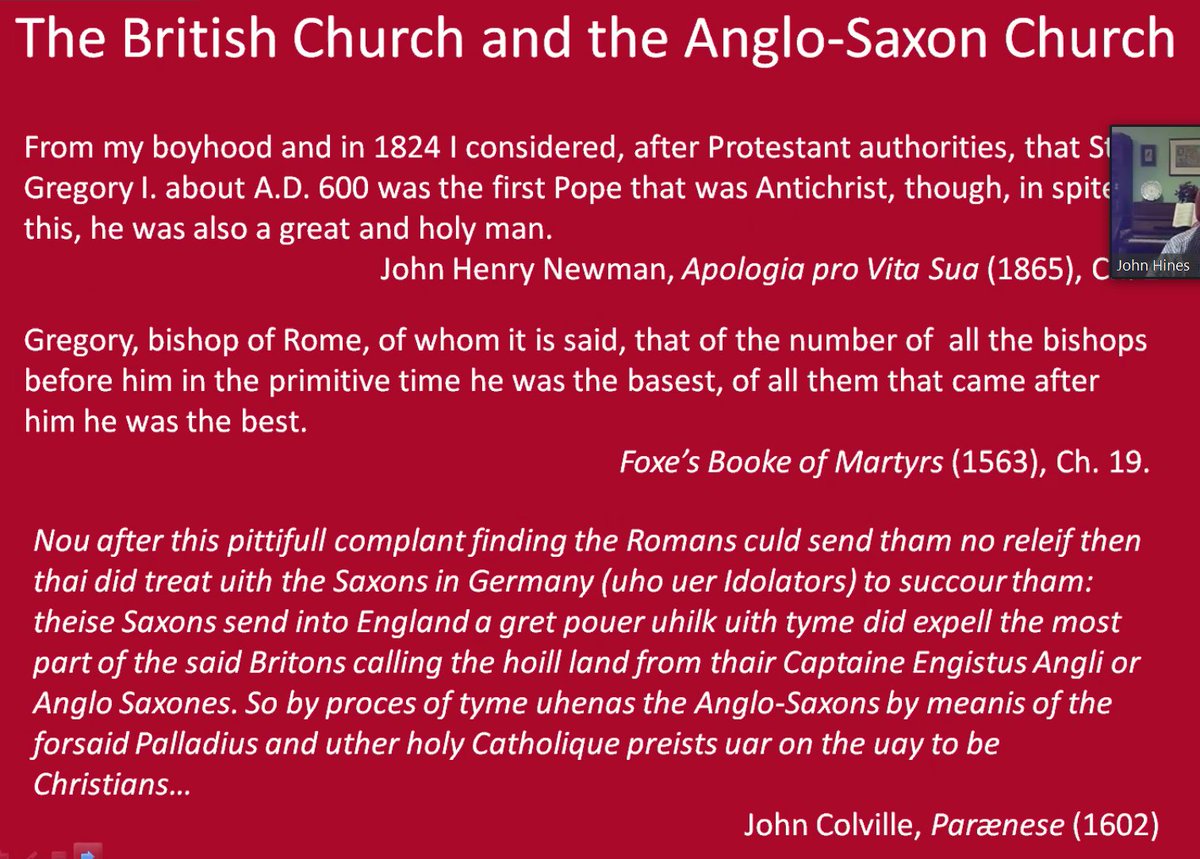
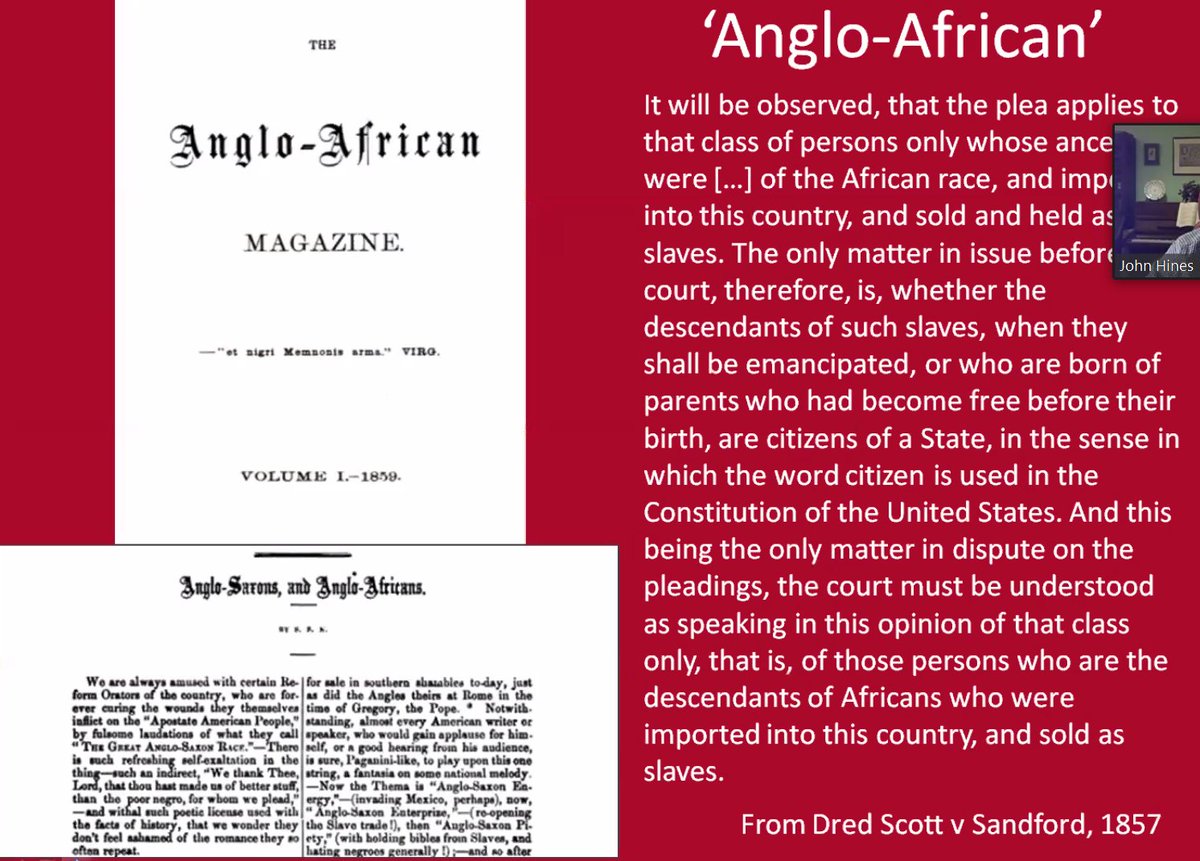
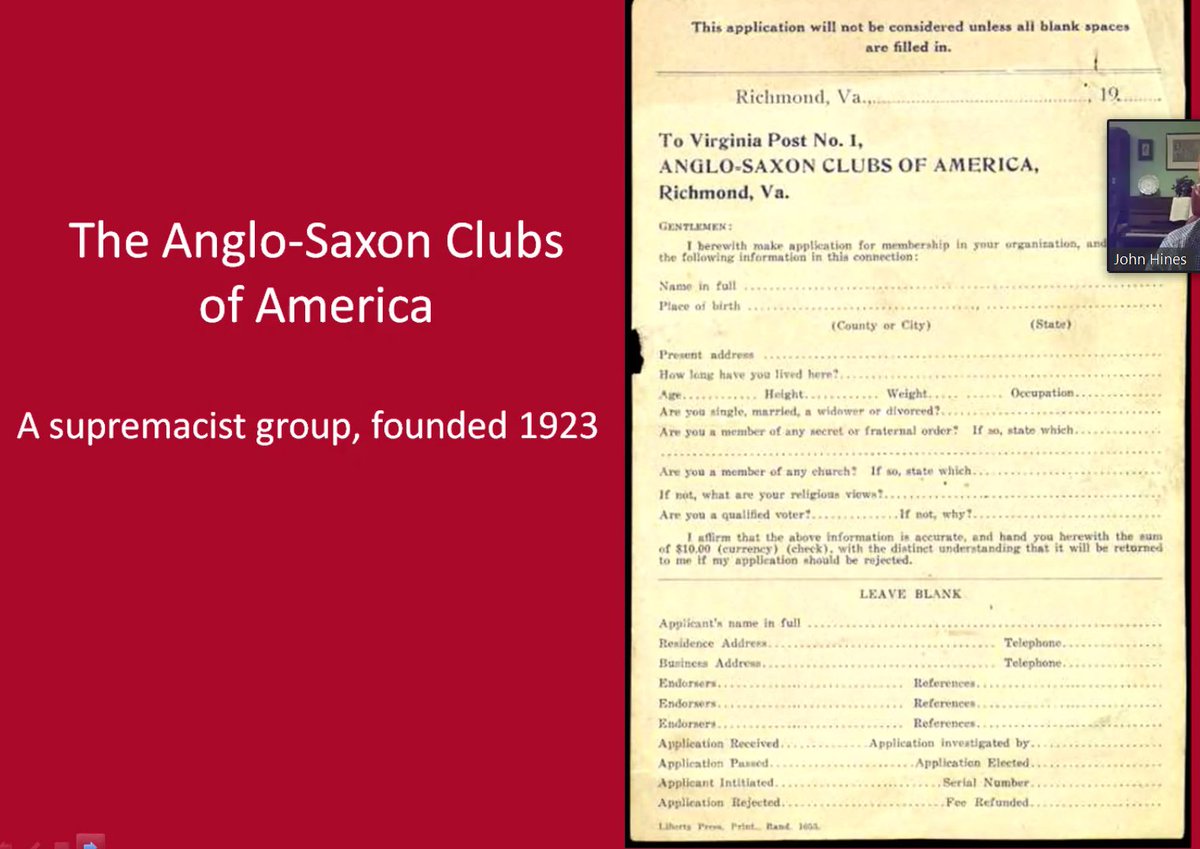
!["A flip side that's even more interesting: is either of us [Hines and Kelly] less Anglo-Saxon?" "A flip side that's even more interesting: is either of us [Hines and Kelly] less Anglo-Saxon?"](https://pbs.twimg.com/media/EmpBSOWW4AAxluY.jpg)


